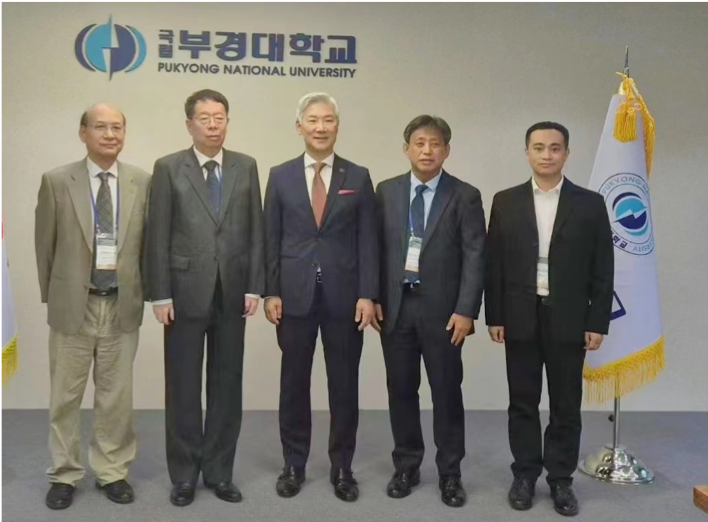From June 19 to 22, 2024, Professors Guanglei ZHU, Xiaolin WU, Long YANG, Jianwen LIU, Ji CHEN, and Assistant Researcher Hanbo WU from Nankai University were invited to participate in the 14th Trans-Pacific International Conference (TPIC) held at Pukyong National University in South Korea.

During the conference, Professor Guanglei ZHU delivered a keynote speech titled "From ‘Isomorphic Responsibility’ to Governmental Responsibility System: Explaining Grassroots Overburden and Exploring Solutions." He examined the root causes of the excessive burden faced by grassroots governments in China and proposed solutions, emphasizing the need for innovative institutional designs to clearly define responsibilities across different levels of government and grassroots organizations to alleviate the strain.

Professor Xiaolin WU, presented his research titled "Passive Cooperation or Active Coproduction? Strategies of Grassroots NGOs in Interactions with Government in Crisis Management in Urban China." Based on a case study of cooperation between the Chengdu government and social organizations, he analyzed the strategies of passive and active cooperation and offered suggestions to promote positive interactions between grassroots governments and social organizations.

In the plenary session, Professor Long YANG delivered a speech titled "Understanding China’s Governance through the Governance Units: A Comparative Perspective." He explored China’s governance unit model from a comparative perspective, explaining how the combination of administrative and functional zones has contributed to economic growth and social stability.

Professor Jianwen LIU presented on "Optimization and Adjustment of Urban Layout in China’s Border Areas under ‘The Belt and Road’." He highlighted the importance of urban layout in advancing the Belt and Road Initiative, suggesting that the imbalance in the distribution of key cities and the underdevelopment of border city clusters should be addressed to foster growth in these regions.

Professor Ji CHEN’s talk, titled "Policy Construction: Differentiation and Differences on the Social Integration of the Chaoxian Immigrants Currently Residing in South Korea," focused on how occupational differentiation affects the social integration of ethnic Korean immigrants from China in South Korea, emphasizing the key role of educational background in occupational stratification.

Assistant Researcher Hanbo WU gave a presentation titled "Using Virtual Traffic to Drive Physical Traffic: How Small Cities Leverage Huge Traffic," where he discussed how some smaller cities attract physical traffic through online virtual traffic, outlining three stages in the development of "internet celebrity cities" and providing insights into their future trajectory post-hype.

In addition, Professors Guanglei ZHU, Xiaolin WU, and Long YANG met with Professor Young-Soo Jang, the President of Pukyong National University, accompanied by Professor Roe Donggun, to explore potential avenues for academic collaboration. Professors Xiaolin WU, Long YANG, and Jianwen LIU also held discussions with Professor Sang Hyun Park, Director of the Global and Regional Studies Institute at Pukyong National University, and Professor Roe Donggun on further collaborations between Nankai University’s Asia Research Center and Pukyong National University’s Global and Regional Studies Institute, including jointly organizing academic conferences.


